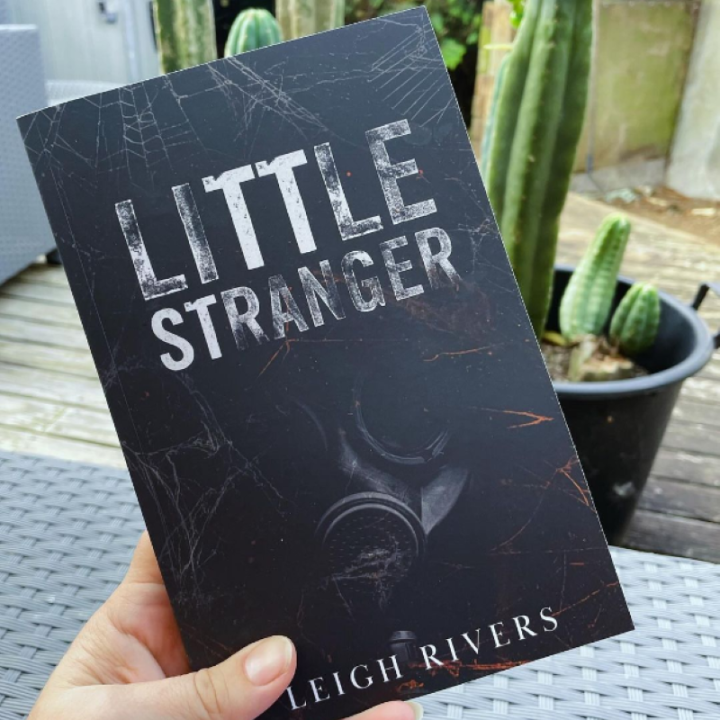Little Stranger: A Deep Dive into a Dark Taboo Romance

Leigh Rivers’ “Little Stranger: A Dark Taboo Romance” has ignited a firestorm of discussion within the dark romance community. This standalone novel, the first in the “Web of Silence Duet,” features a complex, morally gray relationship between foster siblings Malachi and Olivia Vize, pushing boundaries and provoking intense reactions from readers. Its controversial themes, explicit content, and unique narrative style have secured its place as a bestseller and a subject of widespread online debate. This in-depth analysis explores the novel through various lenses, examining its genre, character development, literary impact, and the controversies it has generated.

Genre and Critical Reception: A Polarizing Force
“Little Stranger” firmly resides within the dark romance genre, a subgenre characterized by intense, often problematic relationships, morally ambiguous characters, and explicit sexual content. However, unlike many dark romances that may lean into tropes for a predictable outcome, Rivers’ work presents a highly unconventional narrative that has earned both fervent praise and fierce criticism. The novel’s controversial elements, including the incestuous nature of the relationship (albeit between foster siblings), graphic depictions of violence, and instances of dubious consent, have resulted in a deeply divided readership.
While some readers celebrate the book’s unapologetic exploration of taboo themes and the unconventional intensity of the relationship between Malachi and Olivia, others condemn its explicit content, questionable morality, and perceived lack of consent. Goodreads reviews, for example, are a battlefield of wildly differing opinions. While some reviewers praise the novel’s “vibes” and intense emotional rollercoaster, highlighting the male narrator’s performance in the audiobook, others express disgust and revulsion at the depiction of the relationship, particularly the scene involving Malachi and Olivia with their dying father. The sheer range of reactions—from intense love to utter revulsion—demonstrates the polarizing nature of the novel and its success in provoking a strong response.

Books: Genre Classification and Bestseller Status
Amazon categorizes “Little Stranger” as a “Dark Taboo Romance,” accurately reflecting its core themes. The book’s commercial success, reflected in its Bestseller status on both Amazon and the frequent mentions of it as a BookTok favorite, confirms its broad appeal to a significant niche audience within the dark romance market. This success, however, doesn’t negate the criticisms leveled against its content and narrative choices. The fact that it’s a bestseller highlights the existence of a considerable readership receptive to this specific brand of dark romance. The contrast between its bestseller status and the strongly negative reviews underscores the multifaceted and often contradictory nature of literary taste and judgment.

Character Analysis: Malachi and Olivia – A Study in Dysfunction
The novel’s central characters, Malachi and Olivia, are deeply flawed and complex individuals whose relationship forms the core of the narrative. Malachi is presented as an unhinged, possessive, and manipulative character, driven by his lifelong obsession with Olivia. His past trauma and struggle with selective mutism contribute to his complexities, making him a compelling, albeit disturbing, anti-hero. However, the question of whether his actions are ever truly redeemed or justified within the narrative remains a point of intense debate.
Olivia, on the other hand, is a more ambiguous character. While some readers see her as a victim of Malachi’s manipulations, others criticize her complicity in the relationship’s darker aspects. Her fluctuating emotional state and willingness to engage in explicit acts with Malachi, despite her expressed reservations about their relationship’s incestuous nature, render her a morally ambiguous figure. Her actions often contradict her stated feelings, leading to accusations of hypocrisy and undermining her position as a relatable victim. The inconsistent portrayal of her emotional response further contributes to the divisive nature of the narrative.
Authors: Leigh Rivers’ Style and Inspirations
Leigh Rivers, the author, is known for her dark, morally gray characters and intense, rollercoaster-style storytelling. Her writing style is characterized by its explicit nature and its willingness to confront challenging themes. The inspirations behind “Little Stranger” remain largely unexplored, but the novel’s themes of obsession, revenge, and forbidden love are common motifs in dark romance literature. While Rivers’ choice of topics isn’t unprecedented, the way she weaves them into the narrative of “Little Stranger” is what has led to its intense polarisation.
Reading and Learning: Educational Value and Life Lessons (or Lack Thereof)
The educational value and life lessons offered by “Little Stranger” are highly debatable. While the novel’s exploration of trauma, obsession, and the complexities of human relationships could be seen as providing insight into the darker aspects of psychology, this potential is largely overshadowed by the book’s problematic depictions of consent and the romanticization of a deeply dysfunctional relationship. The explicit and highly controversial aspects of the novel raise concerns about the potential negative impact on readers, particularly those who might be influenced by the portrayal of such morally grey situations. The lack of healthy relationship dynamics makes it challenging to identify any positive learning outcomes. Instead, its main impact on some readers may be the opposite—triggering negative emotions and solidifying unhealthy relationship patterns.
Reading Habits and Reader Responses
The novel’s overwhelmingly mixed reception reflects varying reading habits and preferences. Readers drawn to extreme dark romance often praise “Little Stranger” for its intensity and transgression of conventional boundaries. Conversely, readers who prefer more balanced, healthy relationship dynamics in their romances often condemn it for its explicit content and the lack of consent in several crucial scenes. The intensity of both positive and negative responses highlights a significant gap in reader expectations and the author’s execution of the chosen narrative and themes.
Libraries and Archives: Accessibility and Preservation
The availability of “Little Stranger” across various online platforms and libraries points towards its significant reach and impact. While it’s readily accessible through commercial channels like Amazon, its presence in online archives further underscores its entry into popular culture’s consciousness. This accessibility does, however, reinforce the concerns regarding the potential negative influences on impressionable readers. The ease with which the book can be found online might inadvertently promote the normalization of the dysfunctional relationships and morally gray areas present in its storyline.
Cultural Impact: Literary Influence and Adaptations
The novel’s cultural impact is currently emerging. Although adaptations to other media aren’t yet confirmed, the considerable online buzz surrounding the book suggests that it may garner future attention from publishers and filmmakers. The intense engagement and debate on social media platforms like Goodreads and BookTok indicates “Little Stranger” is already exerting a form of literary influence by sparking conversations around consent, healthy relationships, and the ethical boundaries of dark romance. The controversy itself generates substantial engagement and thus contributes to the book’s broader cultural impact.
Awards and Communities
While no major awards have yet been bestowed upon “Little Stranger,” its status as a bestseller and its significant presence on BookTok demonstrate a level of recognition and engagement within certain communities. The passionate and polarized discussions surrounding the novel constitute a vibrant community in themselves, showcasing the book’s ability to draw readers in through provocative and emotionally charged content.
In conclusion, Leigh Rivers’ “Little Stranger” stands as a significant, yet problematic, addition to the dark romance genre. Its controversial nature and deeply divisive reception highlight the complexities of the dark romance market and the often blurry line between what is considered entertainment and what constitutes harmful or problematic representation. While its commercial success is undeniable, the ethical implications of its explicit content and the intense negative reactions from a significant proportion of readers necessitate a critical and nuanced evaluation of its broader literary and cultural significance.